Israel
Israeli National Security Minister Itamar Ben Gvir visited southern Tel Aviv on Sunday, a day after bloody protests by rival groups of Eritreans left dozens of people injured there.
Eritreans, supporters and opponents of Eritrea’s government, faced off with construction lumber, pieces of metal and rocks, smashing shop windows and police cars.
Israeli police in riot gear shot tear gas, stun grenades and live rounds while officers on horseback tried to control the protesters.
"I think that everyone that broke the law here needs to be arrested and needs to be put in prison and not only to sit in jail but needs to sit without limit of time until they leave from here. They don't need to be here, it's not their place" said Gvir
Earlier Sunday, Israeli Prime Minister Benjamin Netanyahu said he wanted Eritrean migrants involved in a violent clash in Tel Aviv to be deported immediately and has ordered a plan to remove all of the country's African migrants.
The violence on Saturday returned to the fore the issue of migrants, which has long divided Israel.
Its resurgence comes as Israel is torn over Netanyahu's judicial overhaul plan, and supporters cite the migrant issue as a reason why the courts should be reined in, saying they have stood in the way of pushing the migrants out.
Under international law, Israel cannot forcibly send migrants back to a country where their life or liberty may be at risk.
Netanyahu said Sunday he didn’t think deporting supporters of the Eritrean government would be a problem.
About 25,000 African migrants live in Israel, mainly from Sudan and Eritrea, who say they fled conflict or repression.
Israel recognizes very few as asylum seekers, seeing them overwhelmingly as economic migrants, and says it has no legal obligation to keep them.
The country has tried a variety of tactics to force them out, including sending some to a remote prison, holding part of their wages until after they agree to leave the country or offering cash payments to those who agree to move to another country, somewhere in Africa.
Critics accuse the government of trying to coerce the migrants into leaving.
Migrant supporters say Israel, a country founded upon the ashes of the Holocaust and built up by Jewish refugees, should welcome those seeking asylum.
Opponents claim migrants have brought crime to the low-income southern Tel Aviv neighborhoods where they have settled.
The clashes came as Eritrean government supporters marked the 30th anniversary of the current ruler’s rise to power, an event held near the Eritrean embassy in south Tel Aviv.
Eritrea has one of the world’s worst human rights records and migrants in Israel and elsewhere say they fear death if they were to return.




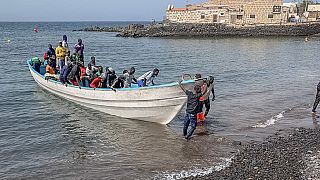
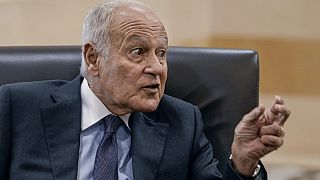
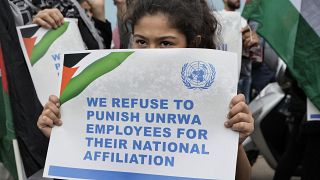
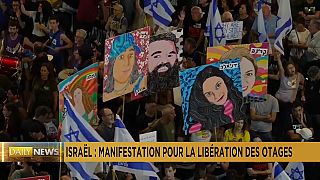
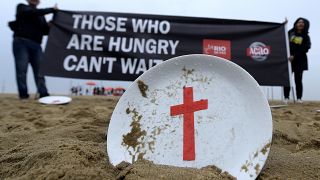
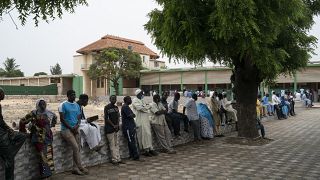
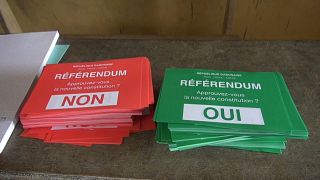
Go to video
World's longest detained journalist wins rights prize
00:53
Pope Francis calls for empathy and justice in welcoming Migrants
Go to video
Italy enacts decree to salvage Albania migration deal
Go to video
Is Migration the only path to success for the African youth? (Africanews Debates)
01:02
EU leaders summit opens with more tightened migration policy in the works
Go to video
One dead, two missing as boat with 100 migrants sinks near Greece